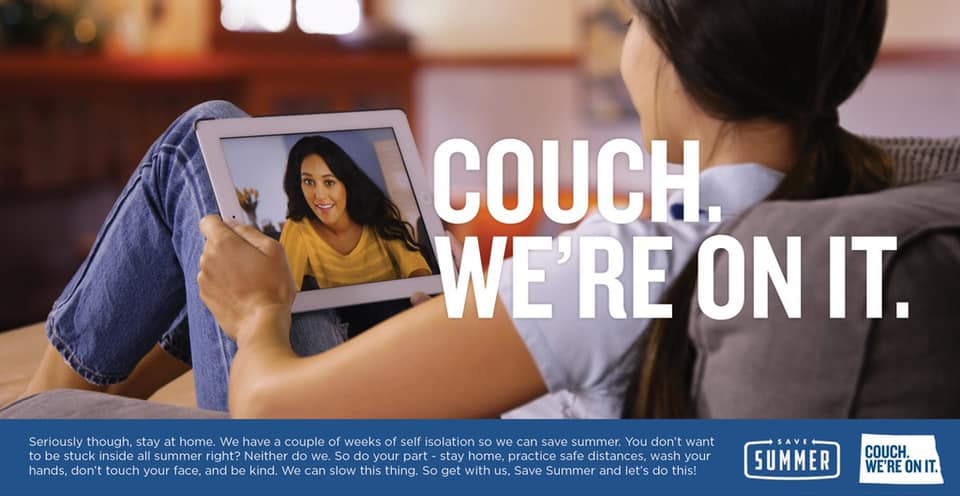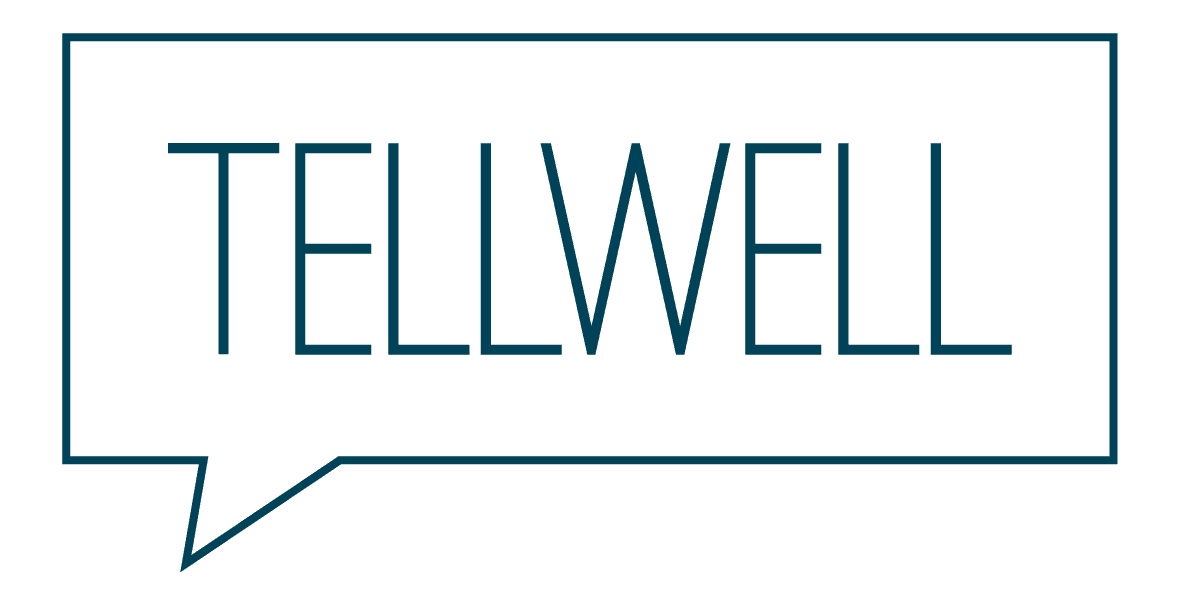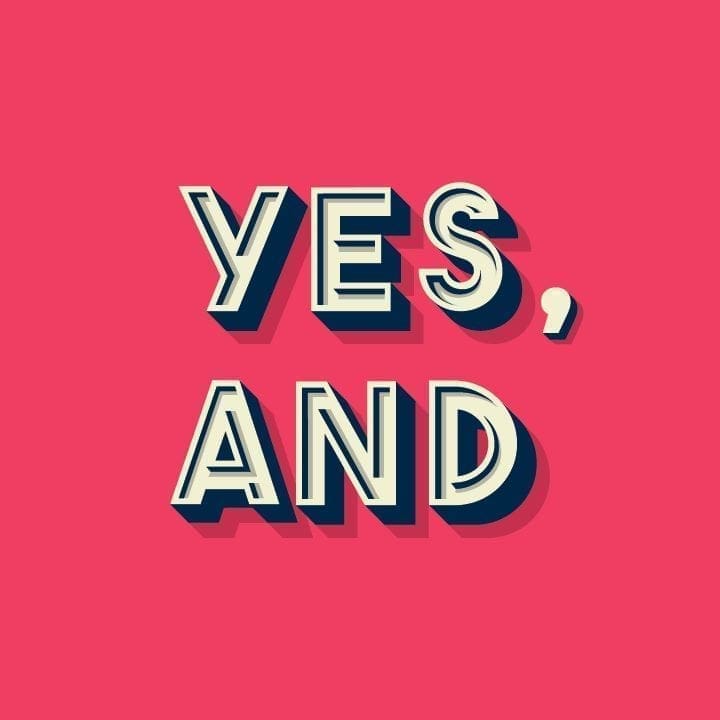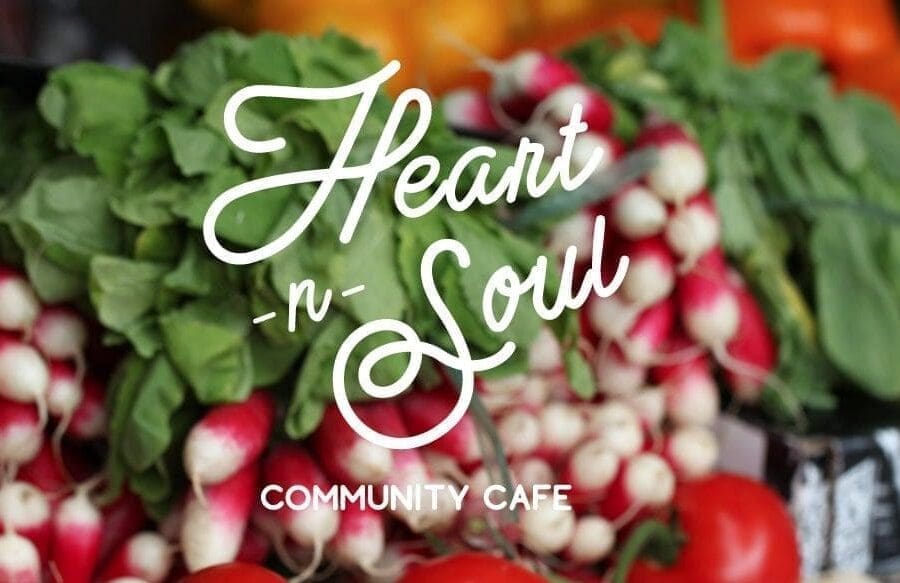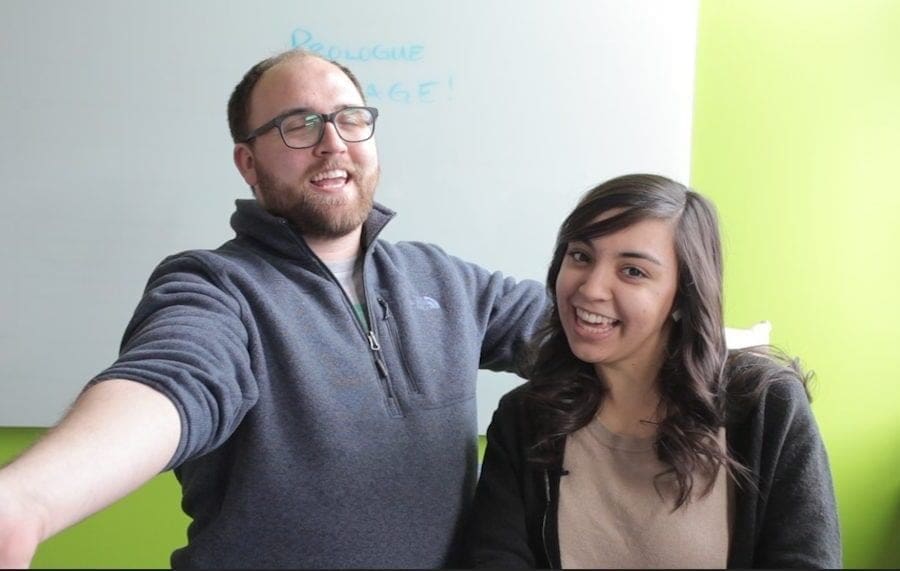Anyone who has ever participated in an improv class will be familiar with the phrase “Yes, And.”
It’s the name of a popular exercise in which actors are encouraged to accept their fellow actors’ ideas and build on them. The first participant begins by establishing a setting (“What a terribly rainy day here in Fargo!”), while the rest of the actors build on that premise by establishing a plot and conflict (“Yes, and we have locked ourselves out of our office!”). The process continues until the scene comes to a resolution.
Well, “Yes, And” isn’t just for improv troupes anymore.
“Yes, And” is one of the eight Core Norms that dictate why and how we do what we do at Tellwell (learn more about our Core Norms here). We have decided to share one Core Norm with you a month (yes we know we skipped March but honestly, can you blame us?), complete with examples of how we live out these norms on a daily basis. We hope that sharing these norms with you will not only hold us accountable but inspire you to consider why you do what you do.
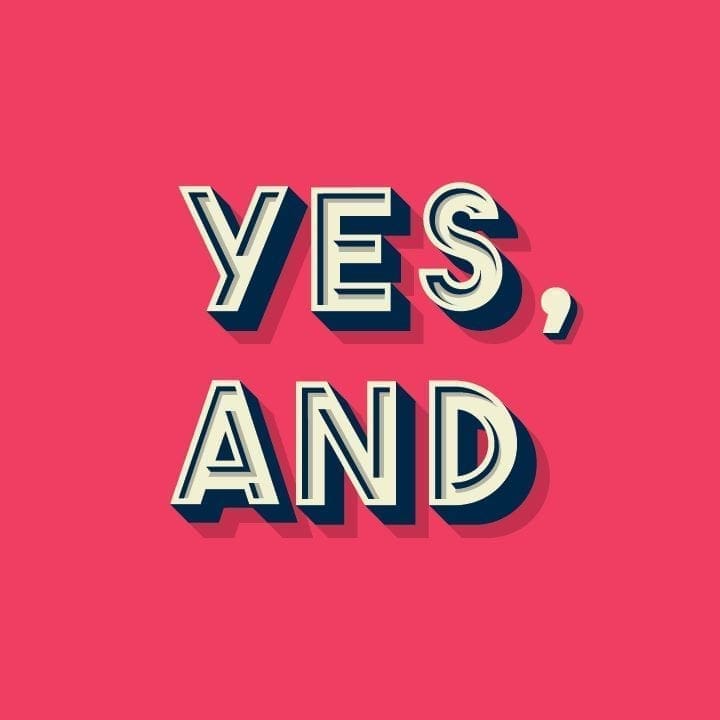
Here’s engagement manager Jayme’s take on “Yes, And”:
“‘Yes, And’ means accepting an idea for what it is worth, regardless of where it came from or what it means. Adding ‘and’ to a suggestion means taking that idea and building directly from it, without trying to change it or inject your personal agenda. At Tellwell, ‘Yes, And’ helps create a supportive environment and strengthens communication by encouraging you to think about the input you’re going to share.”
The most obvious example of the “Yes, And” Core Norm at work is brainstorming. When kicking off a new campaign or project for a client, we will often begin with a silent ideation session. With the entire team gathered in the conference room, we are each given a stack of sticky notes and a limited amount of time (usually 30 to 60 seconds) to write down as many ideas as we can.
When time is up, we go up one by one and place our sticky notes on the whiteboard, saying each idea out loud as it goes on the board. Nobody is allowed to interject their opinions until every single idea has been said. Even then, we don’t sit around and tear down ideas by talking about why they wouldn’t work; we discuss how to make them better.
”‘Yes, And’ means accepting an idea for what it is worth, regardless of where it came from or what it means.
For example, when we were working with Promotional Solutions a few months ago to develop a new name for their brand, our team came up with over 100 names. Some were great, some were just okay, and some were downright terrible—but it didn’t matter. The point of brainstorming is not to come up with only the best ideas; it’s to come up with as many ideas as you can and sift through them to find the real diamonds in the rough.
Saying “no, but” is a sure-fire way to bring a brainstorming session to a screeching halt. A “but” negates whatever was said before it. Not only does it distract the team from the goal of developing and sharing new ideas, but it breaks trust and discourages people from expressing their ideas in the future.
If we had wasted our time tearing down ideas like StoryTaco, Sauce.co, or Brand & Butter (yes, we were hungry that day), we never would have landed on the awesome name that Promotional Solutions goes by today: Brandfolk!
”Saying ‘no, but’ is a sure-fire way to bring a brainstorming session to a screeching halt.
By trading out “No, But” for “Yes, And,” we can foster an environment of growth where each person feels comfortable contributing. And never has this been more important for Team Tellwell than during the wild and unpredictable time of COVID-19.
Over the past few weeks of social distancing and working from home, a large chunk of our time has been dedicated to assisting clients with crisis communication. Add that to all of the non-COVID projects we still need to get done, and suddenly some of us are working much longer hours than usual (though luckily we can work them from our sweatpants).
Then two weeks ago, Max was asked by Fargo Mayor Tim Mahoney to collaborate with several other local leaders and organizations on a campaign to encourage our community—especially young folks—to embrace social distancing and slow the spread of COVID-19.
When Max approached us about adding ANOTHER project to our plates, it would have been all-too easy to say “But we are already so busy! No thank you!” But instead, our team took the idea and ran with it. Along with an incredible team of passionate Fargoans, we’ve brought #SaveSummer to life: Aaron designed the graphics for the clever (and semi-viral) “Couch, We’re On It” social campaign. Rich is editing DAILYnews round-up videos. And the rest of us are supporting with writing, project management, and in any other ways we can.
In this case, saying “Yes, And” can literally save lives (BUT ONLY IF Y’ALL PRACTICE SOCIAL DISTANCING AND STAY HOME WHENEVER POSSIBLE).
